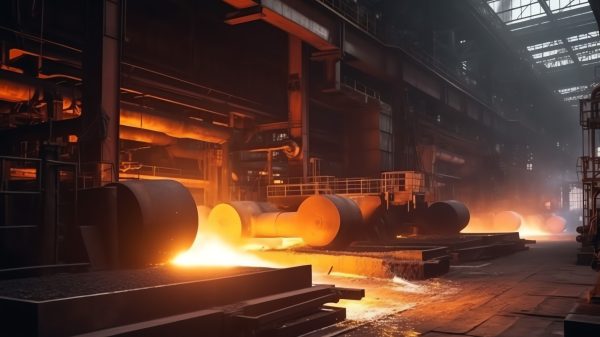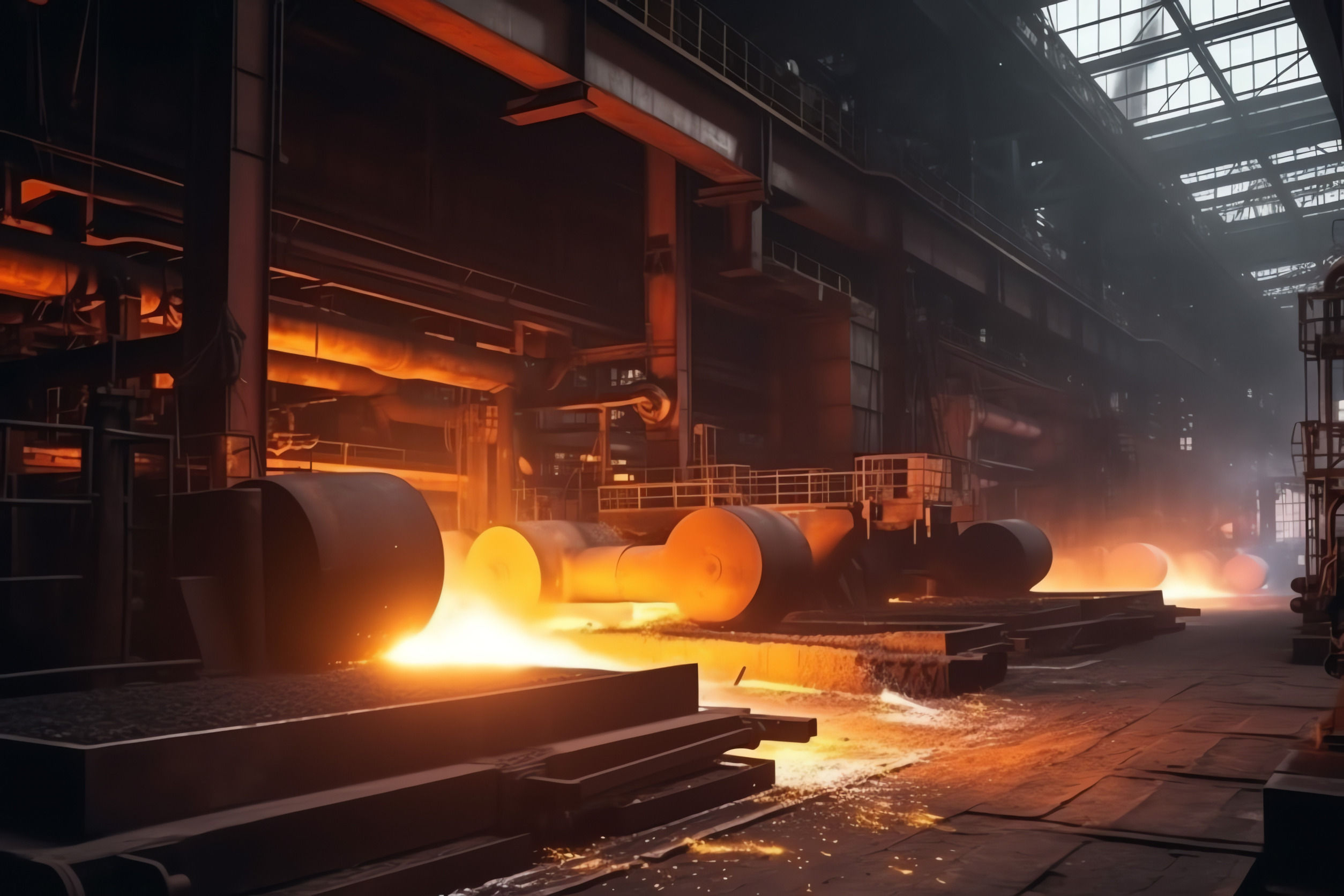The British government announced on Tuesday that it had secured a fuel delivery, allowing the country’s last steel blast furnaces to remain operational for at least a few more weeks, according to a Reuters report.
This move is the latest in a series of desperate attempts by the government to preserve domestic virgin steel production.
The UK government has been working rapidly to acquire sufficient amounts of coking coal and iron ore.
This is crucial to maintain the operation of the loss-making blast furnaces in northeastern England.
Emergency laws
The urgency of the situation led the government to pass emergency laws on Saturday, granting them operational control of the site.
This move effectively transferred control from the Chinese owners, Jingye Group, and highlights the government’s commitment to securing the necessary resources for the continued operation of this critical industrial asset.
The operation of the furnaces presented a significant financial challenge.
The constant need for fuel, coupled with the difficulty of restarting them once shut down, meant that they were a continuous and substantial drain on resources.
This was further compounded by the fact that they were operating at a loss, hemorrhaging 700,000 pounds (equivalent to $922,950) each day they remained active.
This situation highlighted the urgent need to address the operational inefficiencies and financial losses associated with the furnaces.
Dependence on old furnaces
The absence of operational furnaces within Britain would have a cascading effect on multiple critical industries.
The nation would find itself heavily reliant on imports to sustain its rail, construction, and automotive sectors.
This dependence on external sources for essential materials would be particularly precarious given the prevailing global climate characterised by trade wars and geopolitical instability.
Additionally, these factors could lead to disruptions in supply chains, price fluctuations, and potential shortages, all of which could have severe repercussions for the British economy and its industrial base.
Importance of domestic steel
Business minister Jonathan Reynolds emphasised the critical importance of domestic steel for the success of the government’s ambitious plans to modernise Britain’s aging infrastructure.
He highlighted that key British industries, which are central to these revitalisation efforts, are heavily reliant on a consistent and reliable supply of domestically produced steel.
This statement underscores the government’s commitment to supporting the domestic steel industry and recognizing its vital role in achieving broader national economic and infrastructure goals.
After receiving confirmation that the government has settled the payment for the fuel shipment, Reynolds will travel to the east coast port of Immingham.
The shipment, which had originated from the United States, had been stored at the Immingham docks until the payment dispute was resolved.
Reynolds’s visit to the port will coincide with the loading of the fuel for its onward transit, marking the final stage of this transaction.
In a positive turn of events, a separate vessel carrying crucial raw materials, namely coking coal and iron ore, has been released from Australia and is now en route to Britain.
This development comes after the successful resolution of a legal dispute that had previously held up the shipment.
The resolution involved a payment from the government, clearing the way for the much-needed resources to reach British shores.
The post UK activates emergency fuel shipment to avoid shutdown of steel plants appeared first on Invezz
































